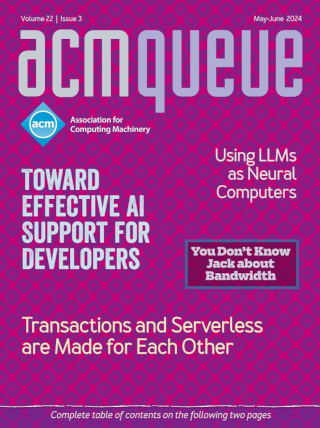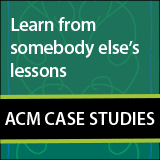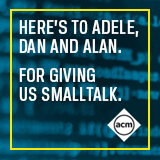Chief Data Scientist at Bitly, Hilary Mason, discusses the current state of data science. https://vimeo.com/74990264
Ethan Miller, Achilles Benetopoulos, George Neville-Neil, Pankaj Mehra, Daniel Bittman - Pointers in Far Memory
Effectively exploiting emerging far-memory technology requires consideration of operating on richly connected data outside the context of the parent process. Operating-system technology in development offers help by exposing abstractions such as memory objects and globally invariant pointers that can be traversed by devices and newly instantiated compute. Such ideas will allow applications running on future heterogeneous distributed systems with disaggregated memory nodes to exploit near-memory processing for higher performance and to independently scale their memory and compute resources for lower cost.
Simson Garfinkel, Jon Stewart - Sharpening Your Tools
This article presents our experience updating the high-performance Digital forensics tool BE (bulk_extractor) a decade after its initial release. Between 2018 and 2022, we updated the program from C++98 to C++17. We also performed a complete code refactoring and adopted a unit test framework. DF tools must be frequently updated to keep up with changes in the ways they are used. A description of updates to the bulk_extractor tool serves as an example of what can and should be done.
Pat Helland - Autonomous Computing
Autonomous computing is a pattern for business work using collaborations to connect fiefdoms and their emissaries. This pattern, based on paper forms, has been used for centuries. Here, we explain fiefdoms, collaborations, and emissaries. We examine how emissaries work outside the autonomous boundary and are convenient while remaining an outsider. And we examine how work across different fiefdoms can be initiated, run for long periods of time, and eventually be completed.
Archie L. Cobbs - Persistence Programming
A few years ago, my team was working on a commercial Java development project for Enhanced 911 (E911) emergency call centers. We were frustrated by trying to meet the data-storage requirements of this project using the traditional model of Java over an SQL database. After some reflection about the particular requirements (and nonrequirements) of the project, we took a deep breath and decided to create our own custom persistence layer from scratch.
George Neville-Neil (aka Kode Vicious) sits down with Chief Data Scientist at Bitly, Hilary Mason, to discover more about what data science is, what the work of a data scientist entails, and how to build systems that make doing data science possible.
Comments
(newest first)





